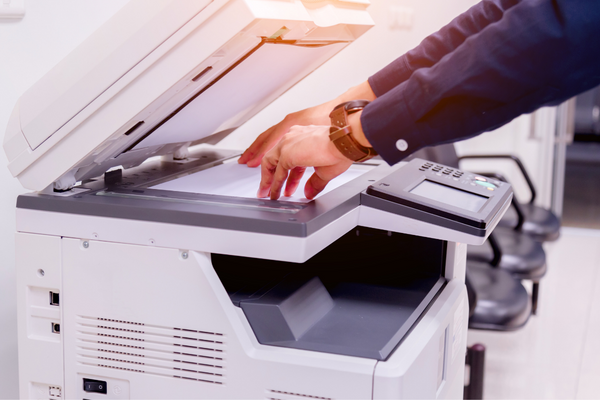
Potential Print-Related Security Risks to Be Aware of in 2023
The growth of the Internet of Things (IoT) often brings to mind ideas of connected appliances, autonomous vehicles, and intelligent homes. However, there are numerous IoT devices that have been in use for a long time that are often overlooked by businesses and organizations in regards to cybersecurity. An example of this is the multifunction printer (MFP).
Although digital communication is becoming more common, multifunction printers (MFPs) are still a staple in many businesses. These devices are so prevalent that they can go unnoticed by both users and IT teams. This can be a problem as MFPs are connected devices and can be targeted by cybercriminals if they are not secured properly.
The danger posed by MFPs
As people begin to return to their office and other workplaces, there is a likelihood of an increase in usage of multifunction printers (MFPs). If these devices are unsecured or have inadequate security measures, they can provide a means of entry into the organization’s network for cybercriminals. Once they gain access to the MFP, they can spread throughout the network and cause significant harm.
MFPs present four potential security risks to a business
- Unauthorized access to MFPs can occur through the use of compromised credentials or outdated software. This access can serve as a gateway for a broader cyber-attack, or allow malicious actors to steal sensitive data stored on the device’s storage drive.
- MFPs are capable of being utilized in distributed-denial-of-service (DDoS) attacks.
- Unauthorized individuals can gain access to the settings of MFPs and alter their configuration, potentially leading to negative consequences like the unauthorized emailing of scanned documents to cybercriminals.
- Unretrieved printouts left on the printer tray can pose an information security risk as they can easily be accessed by unauthorized individuals.
The most significant threat that MFPs pose is to the security of information. By gaining access to data and documents that are sent to and from the MFP, such as scans, photocopies, and emails, malicious actors can exfiltrate sensitive information. Even if the organization has strict data governance policies in place, neglecting the security of the MFPs can lead to a data breach
Methods for reducing risk
To protect against cyber breaches, it is essential to ensure that the MFP is secure, similar to any other connected device. This includes implementing vendor-recommended device firmware updates and securing the device with a strong, unique password
MFPs can accumulate and store data, including inputs from scanning, faxing, and copying, as well as outputs from printing and copying. Many organizations may not be aware of this, and therefore, do not take steps to secure this data. It is essential to ensure that sensitive data is automatically deleted, and storage drives are erased or destroyed before disposing of the MFP.
When acquiring MFPs, businesses should inquire about the security measures offered by the vendor. Vendors should be able to provide an encrypted storage drive, automatic file deletion, automated configuration for optimal security, and password protection. It’s also beneficial to ask if the vendor offers any virus or malware detection that can run on the MFP. Additionally, placing a sticker on the machine that highlights the security measures in place can act as a deterrent for individuals considering a data breach.
As the number of employees returning to the office increases, the usage of MFPs is expected to rise. Businesses should review and update their security measures promptly to protect their MFPs from potential breaches. Neglecting to do so may result in costly data breaches.
HB Technologies offers various solutions to help businesses of all sizes safeguard their data. To learn about how we can enhance the security of your MFPs, reach out to our team today – 0800 423 834 or email info@hbtech.co.nz


